| Year-round Resident | |
| Has Nested in Park |
Tufted Titmice are common year-round residents who nest at Monticello Park. They are in the same family as chickadees.
Where to See Them in the Park
You can see Tufted Titmice in any part of the park. They are vocal and aggressive, so they are not difficult to find.
Physical Description
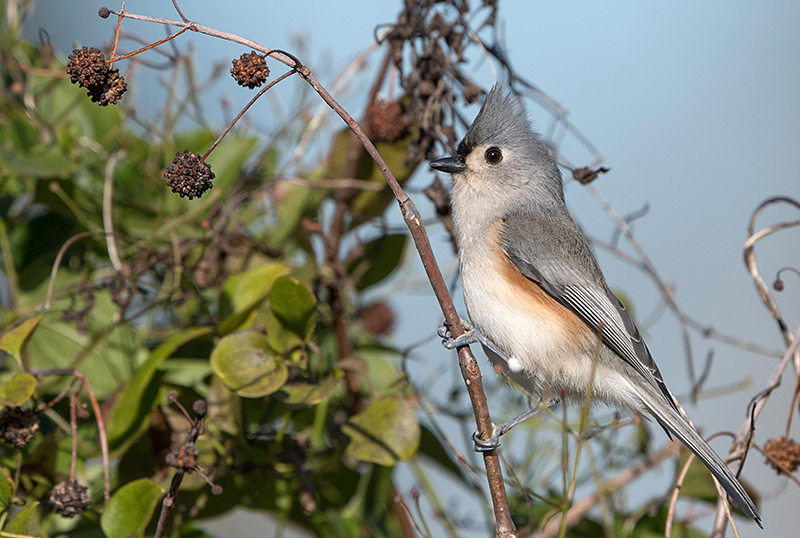
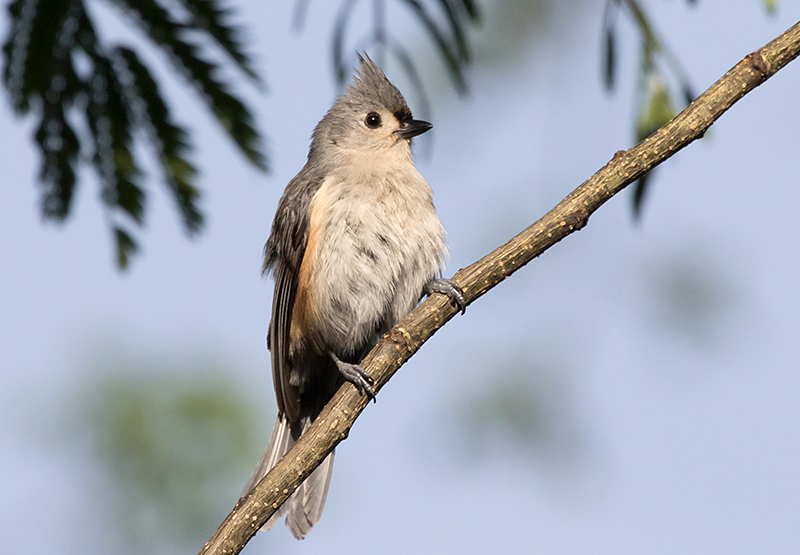
Tufted Titmice are small birds with a gray back, light underparts, and rufous flanks. They have a short, thick black bill under a black forehead. The sexes are similar, and adult plumage looks the same in the spring and fall.
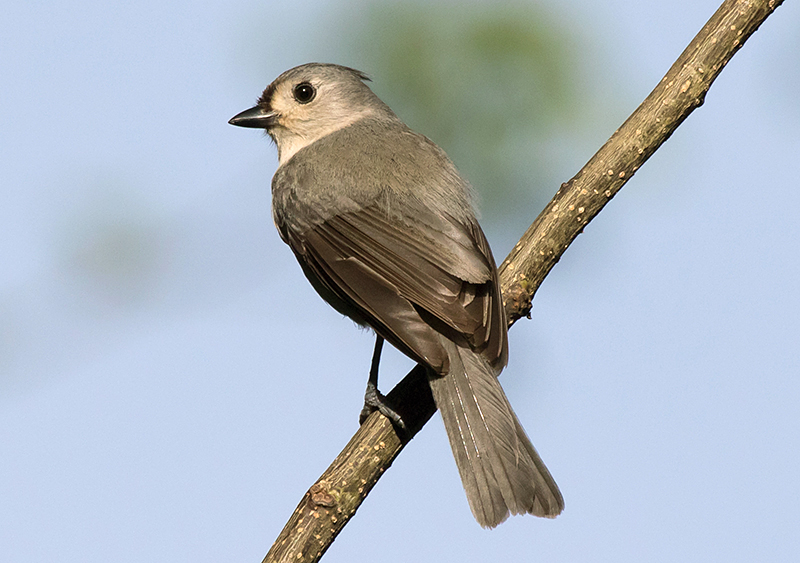
They have a gray crest, which sometimes appears to be flattened.
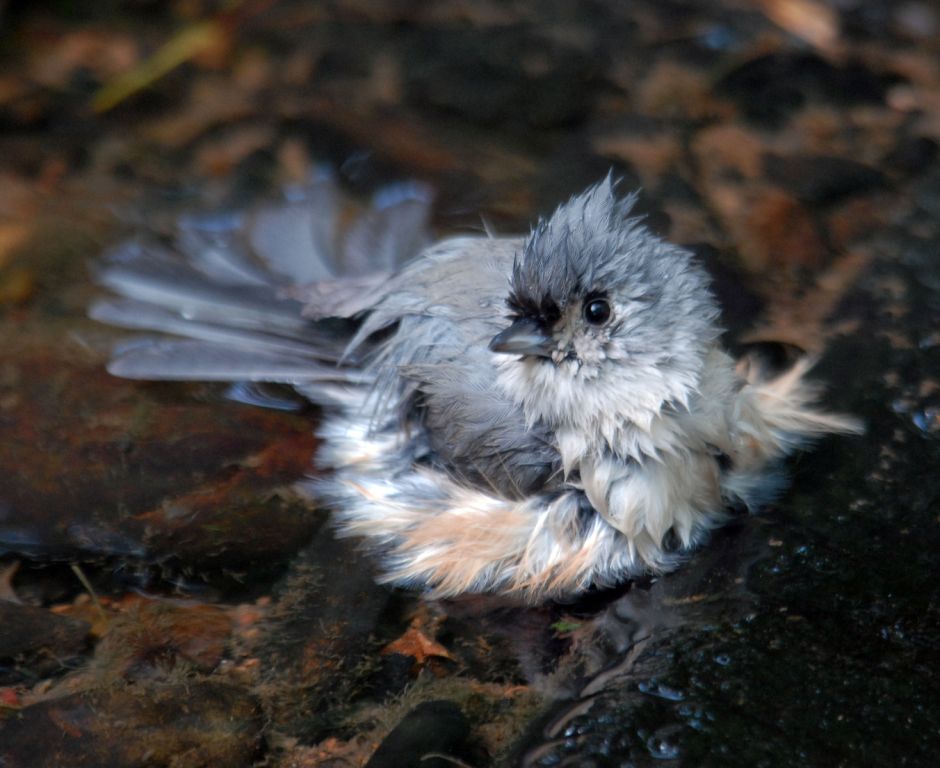
They frequently go into the stream to bathe, sometimes getting very wet before flying to a bush to preen.
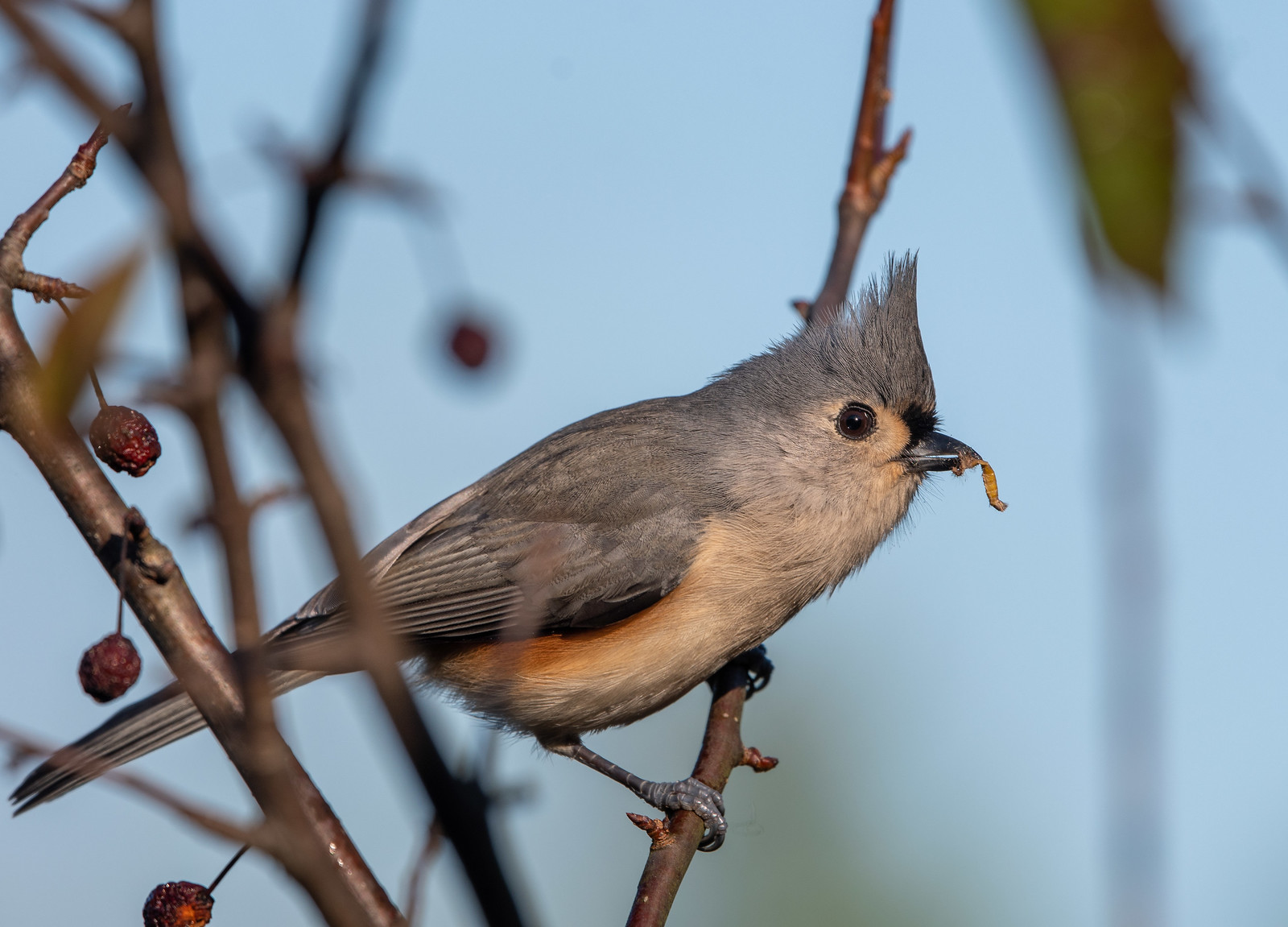
Tufted Titmice are cavity nesters, and the females lay 4 to 8 eggs per brood. A pair sometimes raises two broods a year. Incubation is performed only by the female and lasts two weeks. The young remain in the nest for 17 to 18 days and stay near the parents for close to a month after leaving the nest. You sometimes can see and hear recently fledged titmice at Monticello during the spring.
Vocalizations
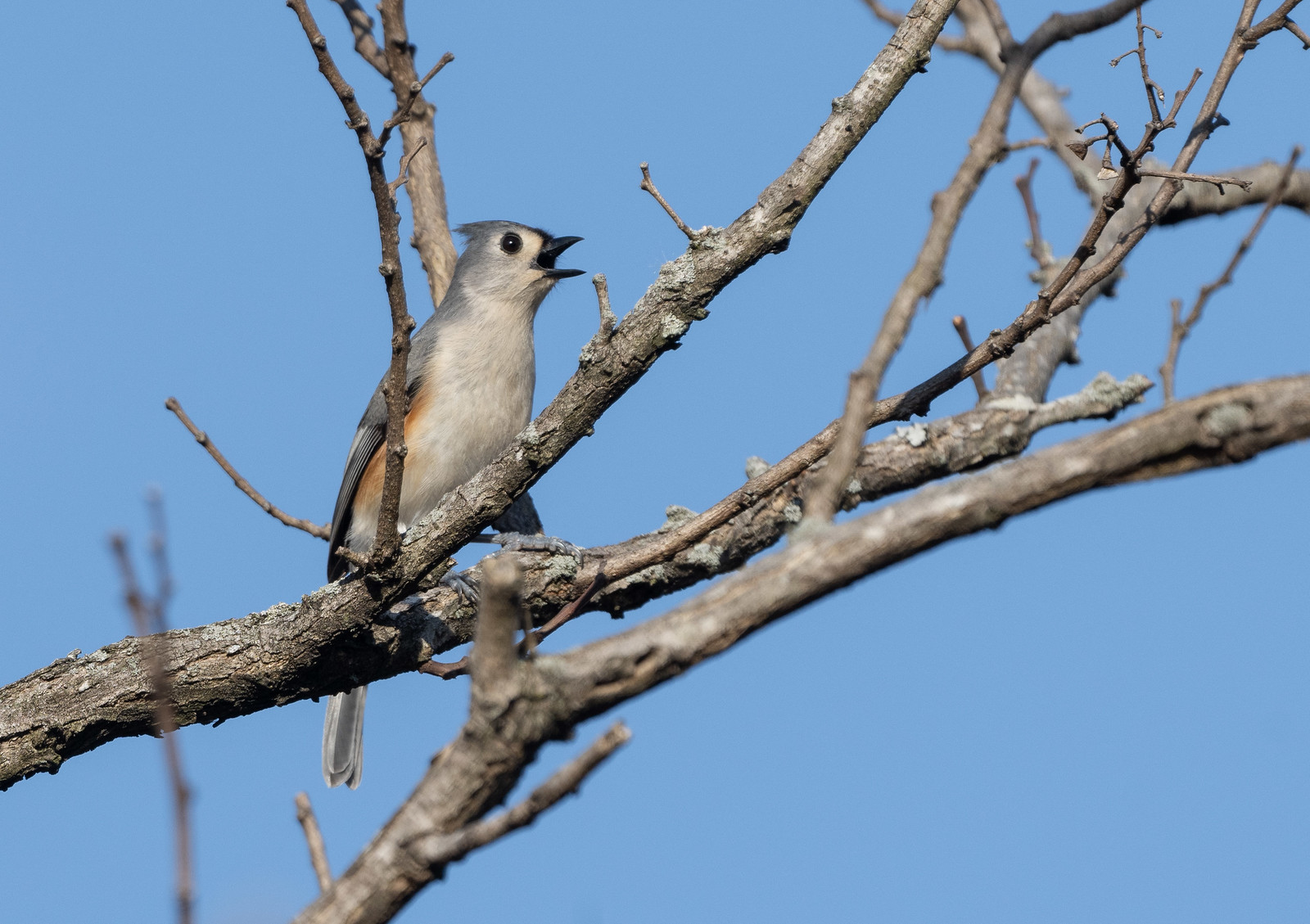
The song of the titmouse is a loud, clear peter-peter-peter-peter, or chiva-chiva-chiva. One of their common calls is a series of raspy and complaining notes.
Hear the vocalizations of the Tufted Titmouse.
Notes
The word titmouse has as nothing to do with breasts or mice, just as the Killdeer has nothing to do with deer and mongoose has nothing to do with geese. The tit part comes from a Scandinavian word that means small, and the mouse part comes from the Anglo-Saxon word mase, which means bird. Some sources say that the correct plural of titmouse should be titmouses. Still, most sources list titmice as acceptable.
Origin of Names
Common Names: Tufted from the gray crest. Titmouse means small bird.
Genus Name: Baeolophus means small crest.
Species Name: Bicolor means two-colored, from the rufous sides providing a second color.
Tufted Titmouse video footage
Return to the Index
